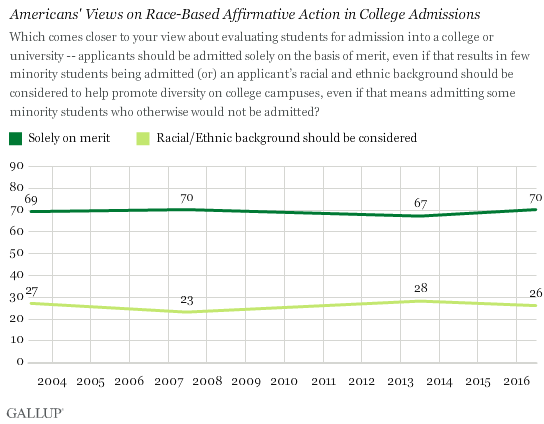Taking Up the Bill Clinton “Hillary Cartoon” Challenge
Below is one of the latest cartoons from two-time Pulitzer Prize-winner Michael Ramirez.

View more of Michael Ramirez’s cartoons on CFIF’s website here.
Below is one of the latest cartoons from two-time Pulitzer Prize-winner Michael Ramirez.

View more of Michael Ramirez’s cartoons on CFIF’s website here.
 In a recent interview with CFIF, Evan Moore, Senior Policy Analyst at the Foreign Policy Initiative, discusses NATO, U.S. and Russian relations following the NATO summit meeting, friction in the Baltic region and what the growing U.S. military troop presence in Poland means for U.S.-Russian relations.
In a recent interview with CFIF, Evan Moore, Senior Policy Analyst at the Foreign Policy Initiative, discusses NATO, U.S. and Russian relations following the NATO summit meeting, friction in the Baltic region and what the growing U.S. military troop presence in Poland means for U.S.-Russian relations.
Listen to the interview here.
Today’s guest lineup includes:
4:00 CDT/5:00 pm EDT: Lance Izumi, J.D., Koret Senior Fellow and Senior Director of the Center for Education at the Pacific Research Institute: Education Update and Reforms;
4:30 CDT/5:30 pm EDT: Alex Pfeiffer, Young Apprentice Reporter at The Daily Caller: DNC’s Leaked Emails;
5:00 CDT/6:00 pm EDT: Blake Barclay, Blogger, Political Correspondent, and High School Student: RNC 2016 as viewed by a member of the iGeneration; and
5:30 CDT/6:30 pm EDT: Open Mic
We take no position in the ongoing Taylor Swift versus Kanye West divide. But as perhaps surprisingly featured in a Wall Street Journal opinion this week, we do applaud her strong stance in defense of intellectual property (IP) and against the scourge of counterfeiting:
Pop star Taylor Swift has been feuding in recent days with rapper Kanye West and his wife, Kim Kardashian. The details of the drama are lurid and complicated, but young aficionados of Snapchat and Instagram have been following it all intently. If only the same were true for other Taylor Swift feuds that have received less attention. Namely, those the 26-year-old songstress has fought in defense of a principle often scorned by fellow celebrities and the social-media generation generally: the value of intellectual property.
In battles against tech titans, Chinese e-commerce swindlers and others, Ms. Swift has repeatedly insisted on being paid for her music and brand – and in the process has taught some valuable lessons in basic economics. This may be the ‘information wants to be free’ era, when online content is glibly swiped by millions who would never dream of shoplifting, but Ms. Swift has a deep appreciation for the profit motive and the fruits it bestows on society.”
As we’ve often noted, it’s no coincidence that the United States has become the most artistically innovative and influential nation in human history while maintaining the world’s strongest IP protections. Rather, it’s a direct causal relationship, as Ms. Swift recognizes:
Ms. Swift explained why she fights. ‘Music is art, and art is important and rare. Important, rare things are valuable. Valuable things should be paid for.’ She added, ‘My hope for the future, not just in the music industry, but in every girl I meet, is that they all realize their worth and ask for it.'”
Whatever one thinks of Ms. Swift as a musician or pop culture icon, her high-profile leadership in defending IP is to be celebrated.
Reasonable people understand that nations more protective of property rights and the rule of law enjoy higher levels of innovation and prosperity. The fields of pharmaceutical advancement and biomedical innovation more specifically are no exception.
In a cogent new piece, U.S. Chamber of Commerce Executive Director of Intellectual Property Policy Patrick Kilbride demonstrates how strong intellectual property (IP) protections fuel biomedical innovation that benefits the world:
[E]conomies with the strongest IP protections are 60 percent more likely to provide environments conducive to biotech innovation. And economies with specific protections for the life sciences field see an average of 13 times more biomedical investment than those lacking IP protections… [A]s intellectual property systems have strengthened over time, public and private investment in health care has increased, as well as individual earnings to support heath costs.” (emphasis in original)
Why does that matter? Because international and even domestic forces seek to undermine IP protections, threatening the goose that continues to lay golden eggs:
We live in a world where concerted efforts are being made daily to erode intellectual property rights, based on the false premise that IP somehow threatens access to medical care. While the facts simply don’t support this theory, it hasn’t stopped activists around the world from spreading misinformation and chipping away at the very IP protections that produced life-saving medicines in the first place. Just a few short years ago, India stripped a leukemia drug of its patent, claiming that it inhibited access by its citizens. The result? Due to government interference, fewer Indian citizens had affordable access to this medication than before the patent was annulled. In Canada, an overzealous judiciary revoked 25 previously granted pharmaceutical patents and sparked a case involving NAFTA protections that could do lasting harm to future investments in life-saving medicines. And Colombia’s prime minister of health has repaid medical researchers scrambling to find a cure for the Zika epidemic by pursuing an arbitrary and dangerous attack on others in the industry, effectively stripping a pharmaceutical company of its patent for another drug. It is also against this backdrop that the United Nations Secretary General has pressed for establishment of a High-Level Panel on Access to Medicines (HLP) to quickly produce a report, based on the same false premise: that ‘failure to reduce the costs of patented medicines is resulting in millions of people being denied access to lifesaving treatments.'”
As Abraham Lincoln observed, “The patent system added the fuel of interest to the fire of genius.” It’s incumbent upon us to safeguard IP protections that continue to fire the genius of medical innovation. Too many lives are at stake across the world to allow the grim alternative.
In this week’s Liberty Update, we note the high degree of confidence and respect that Americans hold toward the nation’s police officers. That respect is returned by the nation’s police chiefs, according to a new survey. By a 76% to 19% supermajority, surveyed chiefs say that “qualified, law-abiding armed citizens can help law enforcement reduce violent activity.” Similarly, by an 88% to 9% margin they agree that any vetted citizen should be able to buy firearms for self-defense or sport, and an 86% to 11% majority supports nationwide recognition of state-issued conceal weapon permits.
Below is one of the latest cartoons from two-time Pulitzer Prize-winner Michael Ramirez.

View more of Michael Ramirez’s cartoons on CFIF’s website here.
 In an interview with CFIF, Karlyn Bowman, Senior Fellow and Research Coordinator at the American Enterprise Institute, discusses the vice presidential chatter on both sides of the political aisle and whether it is possible for a vice presidential pick to help a presidential campaign.
In an interview with CFIF, Karlyn Bowman, Senior Fellow and Research Coordinator at the American Enterprise Institute, discusses the vice presidential chatter on both sides of the political aisle and whether it is possible for a vice presidential pick to help a presidential campaign.
Listen to the interview here.
Join CFIF Corporate Counsel and Senior Vice President Renee Giachino today from 4:00 p.m. CDT to 6:00 p.m. CDT (that’s 5:00 p.m. to 7:00 p.m. EDT) on Northwest Florida’s 1330 AM WEBY, as she hosts her radio show, “Your Turn: Meeting Nonsense with Common Sense.” Today’s guest lineup includes:
4:00 CDT/5:00 pm EDT: Phil Kerpen, President of American Commitment – Regulations from the Executive in Need of Scrutiny (REINS) Act;
4:30 CDT/5:30 pm EDT: Evan Moore, Senior Policy Analyst at The Foreign Policy Initiative – Russia and NATO Post Summit;
4:45 CDT/5:45 pm EDT: Karlyn Bowman, Senior Fellow and Research Coordinator at the American Enterprise Institute – Vice Presidential Chatter;
5:00 CDT/6:00 pm EDT: Brad Smith: Chairman and Founder of The Center for Competitive Politics – First Amendment, Political Speech Rights and Disclosure Laws; and
5:30 CDT/6:30 pm EDT: Quin Hillyer, Contributing Editor of National Review Magazine, Senior Editor for The American Spectator Magazine, and Political Commentator – Presidential Candidates and Conventions.
Listen live on the Internet here. Call in to share your comments or ask questions of today’s guests at (850) 623-1330
On the heels of last week’s indefensible Supreme Court ruling upholding racial discrimination in university admissions (with Justice Kennedy bizarrely reversing his recent position on the other side of the question), there’s good news to report. In a new Gallup poll, a surprising and overwhelming 70% to 26% majority of Americans believe that applicants should be admitted solely on merit. Notably, that majority opposed consideration of race “even when it is explained that this could help increase diversity,” as Gallup emphasized:

Overwhelming Majority Opposes Racial Consideration
Although this lopsided disapproval won’t reverse last week’s Supreme Court error, it does suggest that a broad and rare consensus exists to systematically dismantle such discriminatory practices across federal, state and local levels.
A rare bipartisan consensus agrees that the U.S. corporate tax rate, which remains the developed world’s highest, is in desperate need of reduction and simplification. Today brings an illustration of the problem, courtesy of the Tax Foundation:

Corporate Tax Rates
So this apparently passes as intelligent commentary among The New York Times set and tantrum-throwing “Remain” pajama boy voters in Britain.
Namely, a perpetual adolescent who acknowledges:
Since my late teens, every effort I have ever exerted has been with the intention of escaping Alresford. And yet, I am an early-career academic and so I am forced to move back, every summer, to live with my parents because I cannot afford to pay rent elsewhere after my temporary teaching contract ends.”
Nevertheless, he openly fantasizes about its utter obliteration and return to a state of nature, lamenting the area’s “Brexit” vote to declare independence from the European Union:
Sometimes, in the summer, I walk up the hill and I look out over it, the housing development on one side and the Georgian town center at the bottom of the other, and I have this fantasy image of how it once was, before Alresford was founded in the Middle Ages, when all of this was untouched: just the wild, untamed nature that it keeps wanting to turn itself back into. And sometimes, I think: I wish that would happen. Because all that humans have ever done here is ruin things. Alresford is my personal hell.”
The poor soul.
Conspicuously, however, he doesn’t volunteer himself to stand first in line in his little return-to-nature scrubbing of humanity from the land.
‘Twas ever thus with leftists, of course. Always let someone else endure the consequences of their dystopian visions.
 In an interview with CFIF, Daniel Kochis, Research Associate in the Margaret Thatcher Center for Freedom at The Heritage Foundation, discusses how Britain’s decision to leave the European Union returns power back to the British people, the political and economic fallout from Brexit, and what it means for trade relations with America.
In an interview with CFIF, Daniel Kochis, Research Associate in the Margaret Thatcher Center for Freedom at The Heritage Foundation, discusses how Britain’s decision to leave the European Union returns power back to the British people, the political and economic fallout from Brexit, and what it means for trade relations with America.
Listen to the interview here.